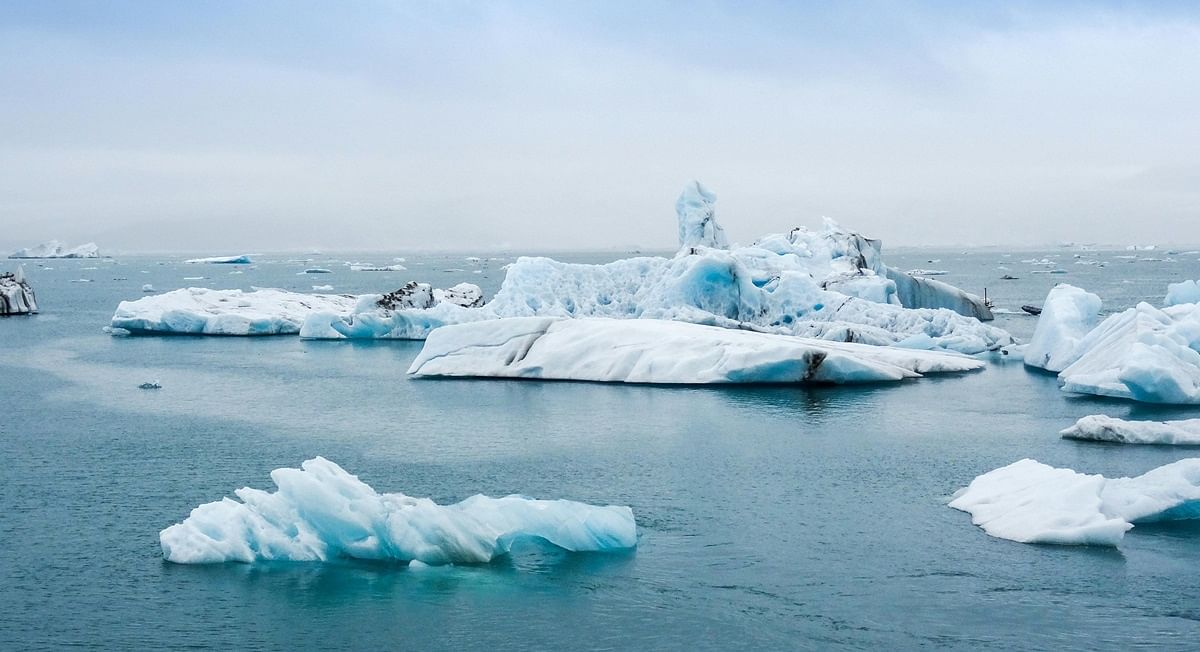
The World Meteorological Organization (WMO) has recently released its highly anticipated report on the State of the Global Climate for the year 2023. The findings are alarming, indicating that 2023 surpassed previous records to become the hottest year on record by a significant margin.
The report paints a grim picture of the state of our planet, highlighting unprecedented levels of greenhouse gas emissions, soaring surface temperatures, ocean heat, and acidification. It also documents alarming trends in sea level rise, Antarctic sea ice cover, and glacier retreat.
The consequences of these climatic irregularities were felt worldwide, with heatwaves, floods, droughts, wildfires, and intensifying tropical cyclones wreaking havoc on communities. These extreme events disrupted millions of lives and resulted in staggering economic losses running into billions of dollars.
According to the WMO report, the global average near-surface temperature in 2023 was 1.45°C above the pre-industrial baseline, marking it as the warmest year on record. Notably, this temperature increase is within a margin of uncertainty of ± 0.12 °C. Furthermore, the report underscores that 2023 also witnessed the warmest ten-year period ever recorded.
The report highlights the distressing fact that nearly one-third of the global ocean experienced marine heat waves on an average day in 2023. This phenomenon has had detrimental effects on crucial ecosystems and food systems worldwide. Towards the end of the year, over 90% of the ocean had encountered heatwave conditions at some point.
Preliminary data reveals that the global reference glaciers experienced their most significant loss of ice since 1950, with extreme melting observed in western North America and Europe. Additionally, Antarctic Sea ice extent plummeted to unprecedented lows, with the maximum extent at the end of winter falling one million km2 below the previous record.
The human toll of these climatic disturbances is staggering. The number of acutely food-insecure individuals more than doubled from pre-pandemic levels, reaching 333 million people in 2023. While weather and climate extremes may not be the sole cause, they exacerbate existing vulnerabilities and contribute to worsening humanitarian crises.
Amidst these dire circumstances, there is a gleam of hope. The report highlights the rapid growth of renewable energy generation, driven primarily by solar radiation, wind, and hydroelectric power. In 2023, renewable capacity additions surged by nearly 50%, reaching a total of 510 gigawatts—the highest observed rate in two decades.
The release of the WMO report coincides with the Copenhagen Climate Ministerial, where world leaders will convene to accelerate climate action. With the deadline for enhancing Nationally Determined Contributions (NDCs) approaching in February 2025, delegates will strive to secure ambitious agreements on financing at COP29 to translate national plans into tangible actions.
Key Points from the WMO Report: 2023 Climate Trends
The latest report from the WMO has revealed crucial insights into the state of our planet's climate in 2023. Here are the key points from the report:
-
2023 emerged as the warmest year on record, with temperatures soaring to 1.45 ± 0.12 °C above the pre-industrial average. This significant increase underscores the alarming pace at which our planet is warming.
-
Concentrations of the three primary greenhouse gases—carbon dioxide, methane, and nitrous oxide—reached unprecedented levels in 2023. This surge in greenhouse gas emissions exacerbates the greenhouse effect, contributing to further global warming.
-
The year 2023 witnessed the highest recorded level of ocean heat content in the past 65 years. This concerning trend highlights the profound impact of climate change on our oceans, endangering marine ecosystems and coastal communities.
-
Global mean sea levels reached an all-time high in 2023. Moreover, the rate of sea level rise over the past decade has more than doubled compared to the previous satellite record, posing imminent threats to low-lying coastal regions worldwide.
-
Preliminary data from the global set of reference glaciers revealed the largest loss of ice on record from 1950 to 2023. Particularly alarming is the extreme mass loss observed in western North America and Europe, underscoring the rapid pace of glacial retreat.
-
Glaciers in Switzerland experienced a significant loss, amounting to around 10% of their remaining volume over the past two years. This trend is indicative of the widespread impacts of climate change on mountainous regions worldwide.
-
2023 was marked by severe socio-economic impacts resulting from extreme weather events. From devastating wildfires in Hawaii, Canada, and Europe to destructive flooding in Mediterranean countries, the toll on human lives and infrastructure was substantial.
-
The year 2023 witnessed mounting concerns over food security, population displacement, and the vulnerability of marginalized communities to weather and climate hazards. These challenges underscore the urgent need for concerted global action to address climate change.
The findings of the WMO report serve as a stark reminder of the urgent need for decisive action. With the stakes higher than ever before, global cooperation and bold initiatives are essential to mitigate the worst effects of climate change and safeguard the future of our planet.
Today, the WMO released the #StateOfClimate report. In 2023, the hottest year ever documented, records were broken for greenhouse gas levels, ocean heat and acidification, sea level rise, Antarctic sea cover, and glacier retreat.
— World Meteorological Organization (@WMO) March 20, 2024
Full report: https://t.co/OjfNMaGvbg pic.twitter.com/vxMYvJAl7l










